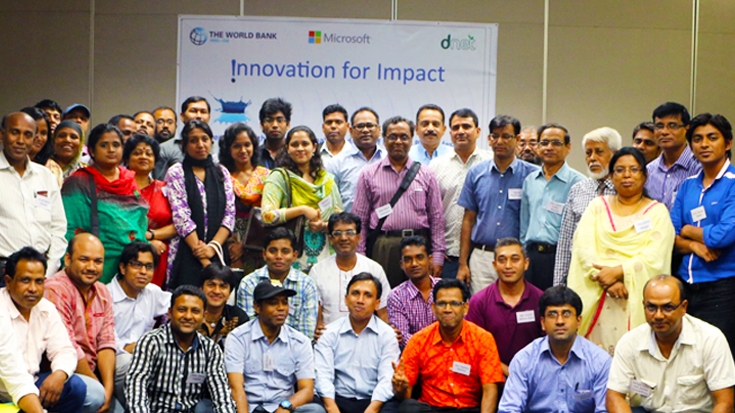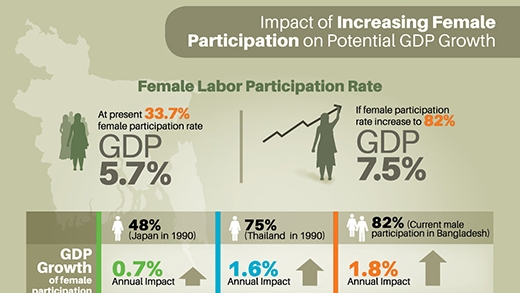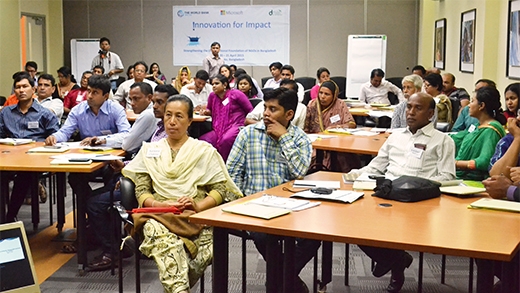Bangladesh has made strong strides in accelerating growth over the last decades. However, the country needs to grow around 8% yearly to reach middle income status. Innovation and use of Information Communication Technology (ICT) can help end poverty and boost shared prosperity. The World Bank, in partnership with Microsoft, organized a two-day ‘Innovation for Impact” workshop to support local Non-Government Organizations (NGOs) in integrating ICT into their work, which in turn would help these NGOs create jobs, especially for women.
ICT can play a catalytic role in promoting the country’s economic development. The experts and participants at the workshop shared ideas on how innovation can bring positive changes in making organizational development more efficient and competitive. “A paradigm shift towards social enterprise can generate income, reduce donor dependency and make an organization self-sustainable. Many good examples already exist in Bangladesh,” pointed out Dr. Anannya Raihan, Chief Executive of DNet, and local partner of the workshop. Now the challenge is to scale up innovation and reach people easily.
NGOs in Bangladesh
NGOs have played an important role in Bangladesh’s development and women’s empowerment. Bangladesh pioneered micro-credit and is home to the world’s largest NGO. Still, civil society organizations in South Asia have not yet maximized the use of ICT to deliver on their mission, which is essential for their long-term success and the sustainability of their programs.
Breaking barriers by increasing female participation in the labor force
Every year Bangladesh creates around 1.2 million jobs, mostly benefitting men. The latest Bangladesh Development Update suggests that to comfortably reach middle income status by 2021, Bangladesh needs more women to join the workforce. Bangladesh can increase its GDP growth by 1.6% if female labor participation increases from 33.7% currently to 82%, a figure on par with the present male labor participation rate.



